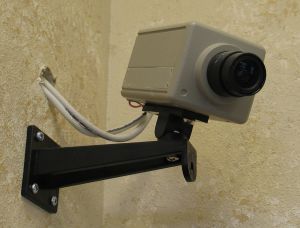There is an old saying: “the truth speaks for itself.”

In a court of law, that isn’t exactly the way it works. The truth matters, of course. But what matters equally is what can be proven. For personal injury victims, this means you must have two things: An attorney who can effectively present the truth about your case to the court and ample evidence to back your assertions.
Because evidence is so critical, there may be some incentive for one side or the other to “lose” critical elements of it. Sometimes, it’s an accident. Other times, it’s intentional. This is called spoliation of evidence, and regardless of the intent, the courts will deal with it harshly.
In Florida, courts have consistently held when spoliation occurs, sanctions are appropriate. Some possible sanctions for the loss of important evidence may include:
–Exclusion of expert testimony –Imposition of an evidentiary presumption in the disadvantaged party’s favor –Dismissal of a claim (if plaintiff caused spoliation)
–Entry of default judgment on the issue of liability (if defendant caused spoliation)
Our Fort Lauderdale injury lawyers know because these sanctions are so severe, evidence must be carefully guarded, and any breaches by the opposing side must be promptly addressed to the full advantage of plaintiff.
While it is not essential to prove bad faith in these instances, it usually must be shown the evidence lost or destroyed was material to the case. The Fourth District Court of Appeal in the 1993 case of Federal Insurance Co. v. Allister set forth a list of five factors to be considered before the court imposes sanctions for evidence spoliation:
–Whether there is prejudice
–Whether prejudice can be cured –The practical importance of the evidence –The good faith or bad faith surrounding the loss of evidence –Possible abuse if evidence is not excluded
In the more recent case of Bilesky v. Shopko, the Montana Supreme Court weighed the issue of evidence spoliation.
Here, a security guard accidentally copied the wrong portion of video footage capturing a slip-and-fall incident in a department store. The relevant footage was destroyed, leaving plaintiff without an important piece of evidence in the case.
Plaintiff asserted the tape would have shown the carpet where she fell was soaking wet, it had been wet for an extended period of time without employee action, there were no caution signs in the area, she fell hard onto the surface, had trouble standing up and required assistance and her gait was unsteady as she rose.
Defendant said it would concede to some of those points in light of the fact the video tape couldn’t be presented as proof. However, the judge declined to present those concessions as judicial admissions to the jury, and then later allowed defendant to present testimony countering the very points defendant had previously conceded.
Upon appeal, the state supreme court ruled the trial court’s actions in this regard amounted to an abuse of discretion warranting a new trial.
This case shows how seriously the courts take instances of evidence spoliation, which is just one of the many issues that can crop up in a personal injury case. You must have an experienced lawyer on your side who is prepared to address such complex matters when they arise.
Call Fort Lauderdale Injury Attorney Richard Ansara at (954) 761-4011. Serving Broward, Miami-Dade and Palm Beach counties.
Additional Resources:
Bilesky v. Shopko, Nov. 14, 2014, Montana Supreme Court
More Blog Entries:
Child Hotel Injury Lawsuit Will Proceed to Trial, Nov. 25, 2014, Fort Lauderdale Personal Injury Lawyer Blog
 Broward Injury Lawyer Blog
Broward Injury Lawyer Blog



